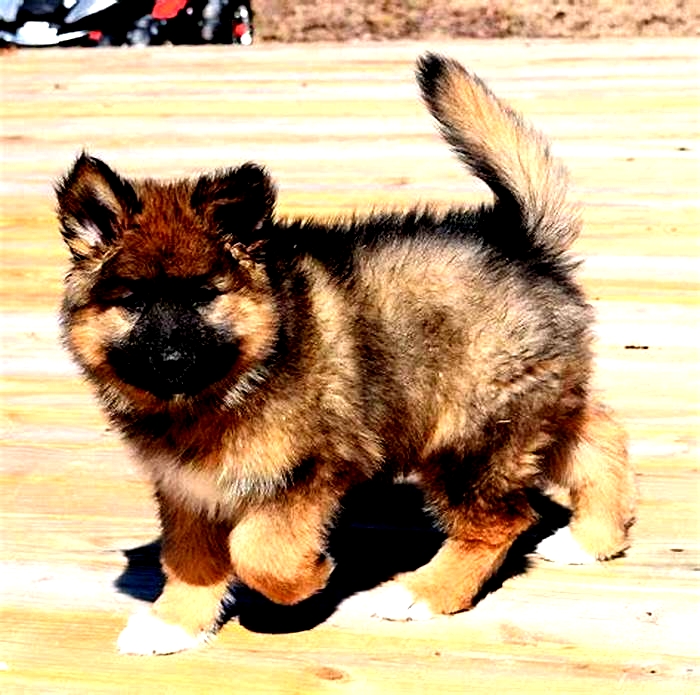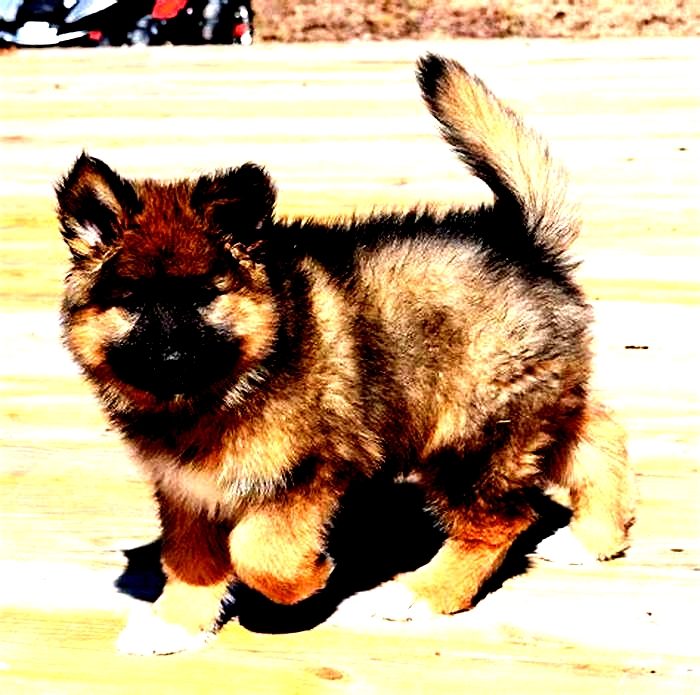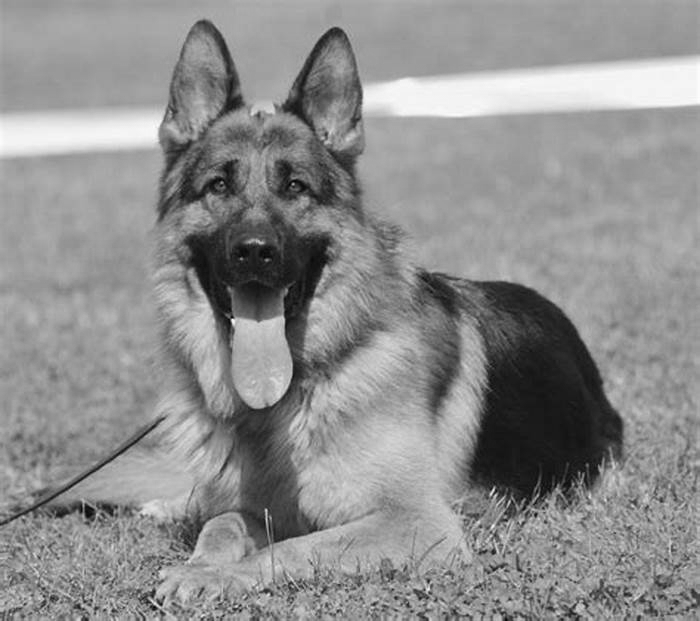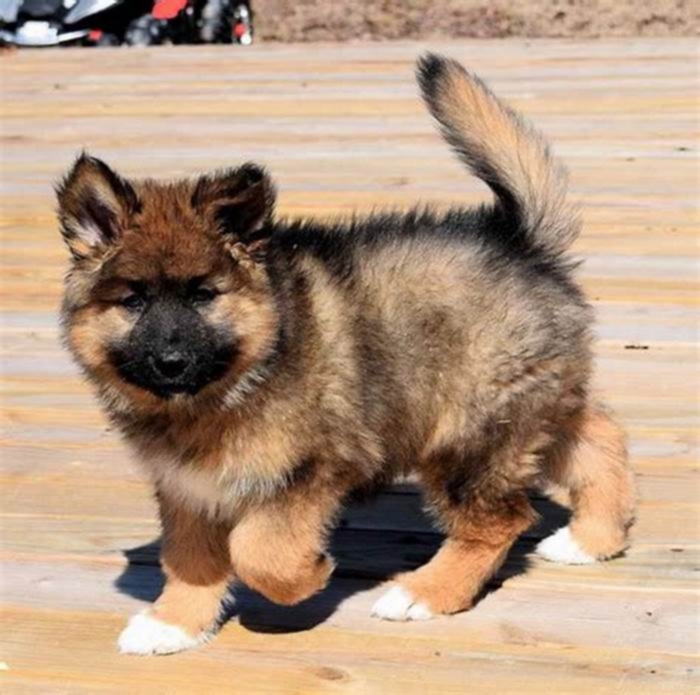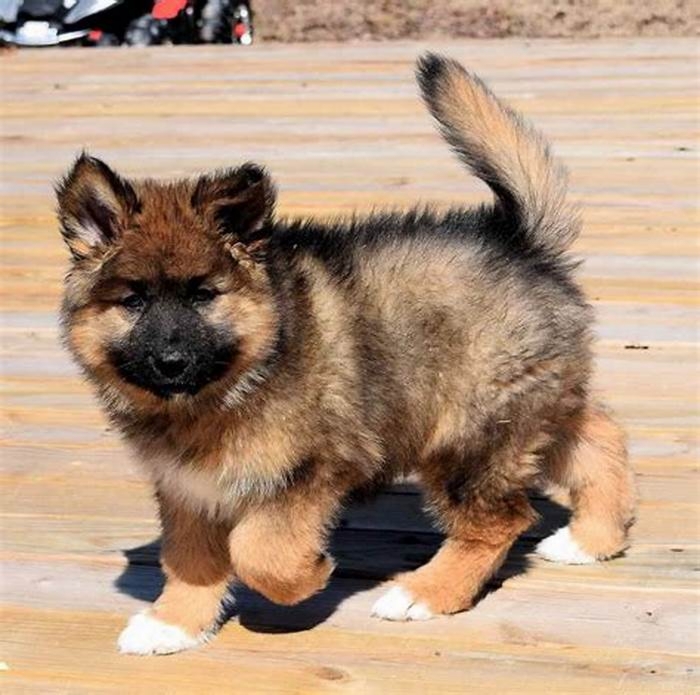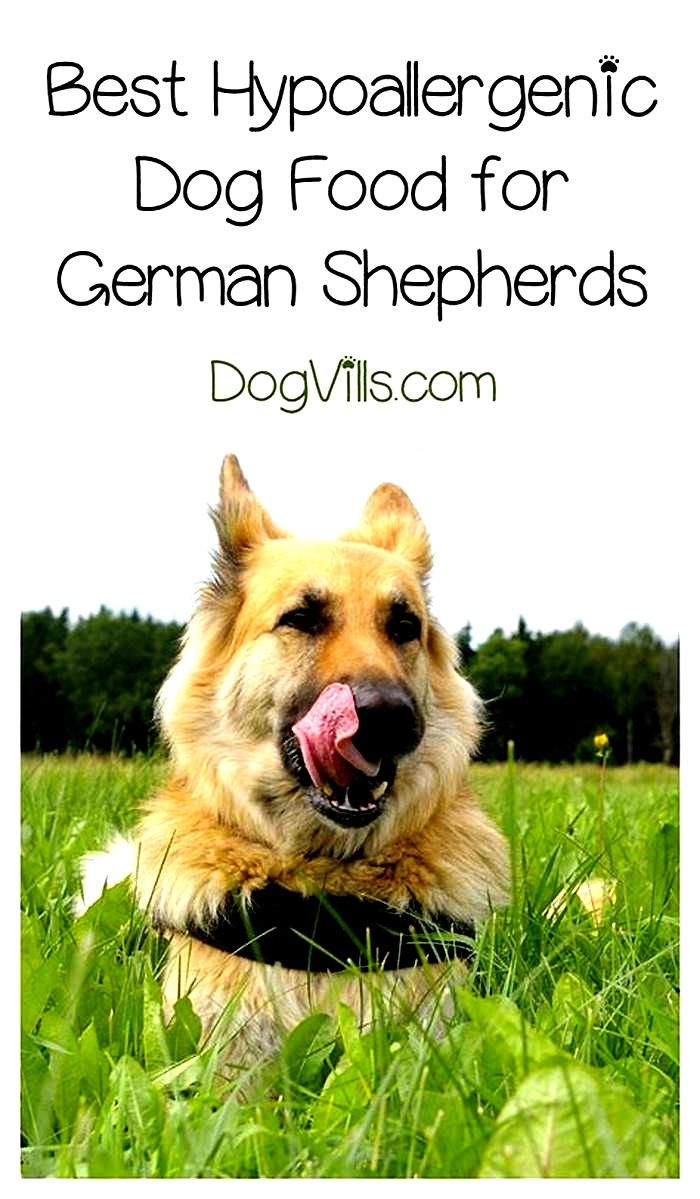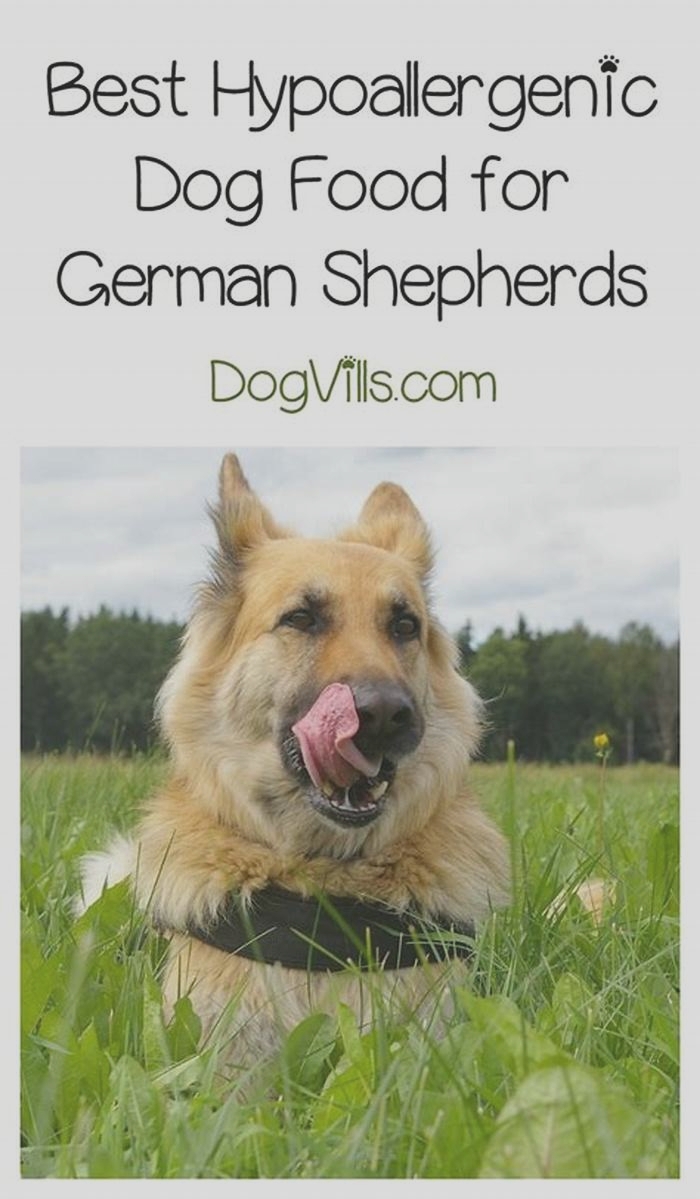hypoallergenic german shepherds
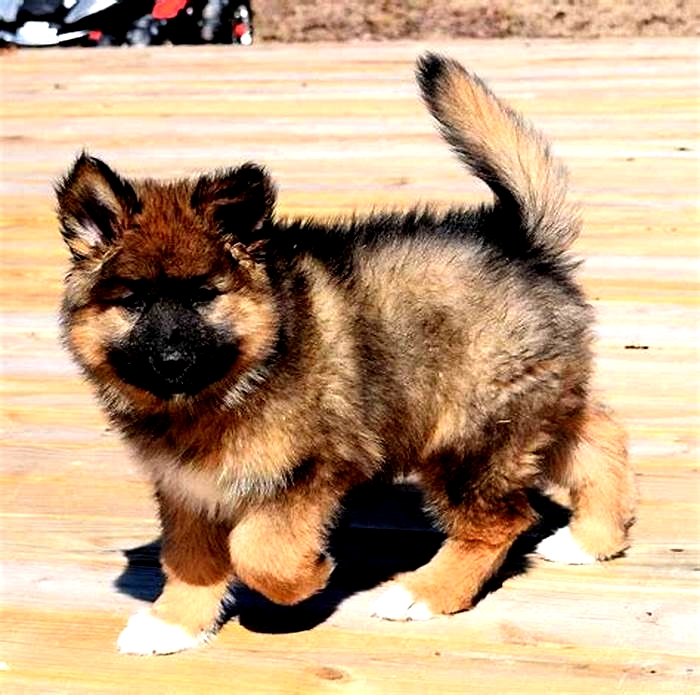
Hypoallergenic German Shepherds: What You Need to Know
German shepherd dogs, or GSDs, are known for their loyalty and protective nature, making them a popular choice for families. However, if you suffer from allergies, you may be wondering if German shepherds are hypoallergenic. Unfortunately, the answer is no. German shepherds are one of the worst breeds for allergy sufferers, as they can trigger mild to severe allergic reactions. In this article, we'll explore why German shepherds aren't hypoallergenic and provide tips for managing your allergies.
What Causes Dog Allergies?
Contrary to popular belief, dog allergies are not caused by dog hair. Rather, they are triggered by a protein found in dog dander, saliva, and urine. This protein gets into a dog's fur when they lick themselves or when dead skin cells flake off. When dogs shed their hair, they also spread these allergens, leading to allergy symptoms such as sneezing, a runny nose, and itchy eyes. It's important to note that individuals with severe allergies may experience shortness of breath or develop rashes when in contact with a dog's saliva.
Why Aren't German Shepherds Hypoallergenic?
German shepherds have a thick, double coat, which sheds heavily throughout the year. The outer coat provides weather resistance, while the dense undercoat helps regulate body temperature. This shedding process spreads dander, exacerbating allergies. The shedding is particularly severe during the fall and spring seasons, making allergy symptoms worse during these times.
What Can You Do If You're Allergic to German Shepherds?
If you have allergies and are considering getting a dog, it may be wise to opt for a more allergy-friendly breed. While German shepherd mixes may still cause allergy problems, German shepherd-poodle mixes can be a better option if bred for non-shedding coats. Third-generation puppies from dedicated breeders are more likely to inherit the non-shedding qualities of poodles.
If you already own a German shepherd and have allergies, there are steps you can take to minimize your symptoms. Regular vacuuming with a robot vacuum, keeping your dog off furniture and out of the bedroom, using air purifiers, and covering vents with filters can help reduce dander in your home. Additionally, bathing and brushing your dog regularly, feeding them high-quality dog food, and considering immunotherapy shots can also alleviate symptoms.
The Best Breeds for Allergy Sufferers Who Love German Shepherds
While no dog breed is completely hypoallergenic, there are breeds that shed less and are more suitable for individuals with allergies. If you're looking for a large family dog like a German shepherd, consider breeds such as the giant schnauzer, Irish water spaniel, Kerry blue terrier, Portuguese water dog, soft-coated wheaten terrier, or standard poodle. These breeds are known for their low shedding and can be a great alternative for allergy sufferers.
So, Are German Shepherds Hypoallergenic?
In summary, German shepherds are not hypoallergenic due to their heavy shedding and dander production. While you can take measures to minimize shedding and dander in your home, these steps will not eliminate allergies completely. If you have allergies and are looking to adopt a dog, it may be best to consider breeds that shed less. Giant schnauzers, poodles, and Portuguese water dogs are all excellent choices for individuals with allergies.
Remember, it's essential to spend time with a dog breed before making a commitment to ensure it doesn't trigger your allergies. For more information on different dog breeds and pet care tips, visit HowPetCare.
Keys to take away:
- German shepherds are not hypoallergenic and can trigger allergic reactions due to their shedding and dander production.
- Dog allergies are caused by a protein found in dog dander, saliva, and urine, rather than dog hair.
- Regular vacuuming, air purifiers, and covering vents can help reduce dander in your home.
- Consider bathing, brushing, and feeding high-quality food to minimize shedding and promote healthy skin and coat.
- If you have allergies, it may be best to consider breeds that shed less, such as giant schnauzers, poodles, or Portuguese water dogs.
- Spend time with a dog breed before adoption to ensure it doesn't worsen your allergies.
Remember to always consult with a medical professional for personalized advice regarding your allergies.
Are German Shepherds Hypoallergenic? Facts & Allergy Care Tips
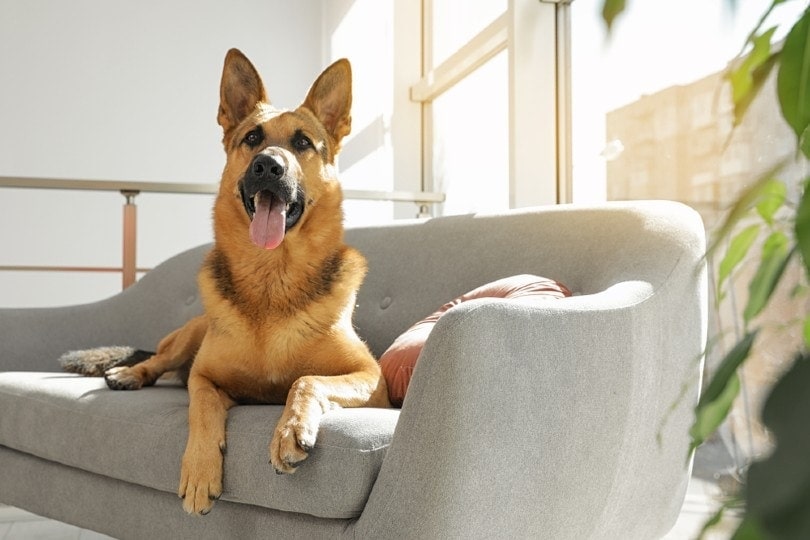
Hypoallergenic dogs are supposed to be suitable for allergy sufferers. Usually, dogs that do not shed much are described as hypoallergenic. By this definition,German Shepherds are not hypoallergenic. However, the term hypoallergenic is quite misleading, as we will discuss in this article.
German Shepherds are not hypoallergenic by any means, but you cant say that any breed is completely hypoallergenic.
What Does Hypoallergenic Mean?
Many people assume that since some dogs do not shed much hair, the hair will not bother those with allergies. However, it is not the hair that affects those with allergies.
Instead, theyre bothered by the saliva and skin of the dog. Since there is no saliva- and skin-less dog, there is no hypoallergenic dog either. All dogs with saliva and skin will bother those with allergies. Its the proteins of the dog, not the dogs hair.
Therefore, getting any dog labeled as hypoallergenic wont work for someone with a severe allergy. However, dogs that shed a lot release more saliva and skin cells into the air. The loose hair works as a transport for all the proteins that cause allergies, like those on dead skin cells.
Therefore, heavy shedders can be harder to tolerate for allergy sufferers. However, that doesnt mean that low-shedding dogs will not cause allergies.
The Type of Allergy Matters
Even if youre allergic to dogs, you may be able to own a German Shepherd with little to no reaction. Research has shown that the type of dog allergy you have matters. Some dogs do not have the same proteins as others. Therefore, if youre only allergic to a specific protein, you may be able to get a dog that doesnt have that protein.
Recent research shows that only intact male dogs create the protein called Can f 5. Therefore, if you are allergic to it, you can get a female German Shepherd. Six different proteins can cause reactions in people with dog allergies. Can f 5 is only made in a males prostate gland.
However, the allergy affects only 30% of those with dog allergies.
The 7 Ways to Manage Allergies
Suppose you are still set on keeping a German Shepherd even though you have dog allergies. There are a few things you can do to prevent an allergic reaction.
1. Use Air Cleaners
A high-efficiency particulate air cleaner can remove allergens from the air, which can significantly reduce your allergic response. While any air filter will likely work, a HEPA filter usually works the best. You can find vacuums with HEPA filters, which can reduce the amount of dander that has built-up around your home.
Usually, those with allergies react to the dander in the air. Because a HEPA filter reduces the dander, it can also reduce the number of reactions.
2. Have Pet-Free Areas
The dogs dander will accumulate in the places where your pet spends the most time. Therefore, if you restrict your dog to certain areas, you can also control where the dander is to some extent. For instance, we recommend keeping your dog out of your bedroom.
You spend a lot of time in your bedroom, so reducing the number of allergens in your bedroom can significantly limit the number of allergic reactions you experience.Furthermore, if there is little to no dander in your room, youll be able to sleep much better.
You wont have allergic reactions in the middle of the night when youre trying to sleep.You should also keep your dog off the furniture. Instead, limit your dogs sleeping to a specific pet area, like the dog bed.
German Shepherds are a very trainable breed, so it should be easy to train them to avoid specific areas.
3. Regular Grooming
When it comes to a German Shepherd, you will need someone else to take over the grooming. It is essential to brush the German Shepherd every day. Awell-groomed dog wont have as much dander to lose, which can further reduce the number of reactions you have.
For monthly baths, use a good shampoo that is designed to moisturize their skin. Dry skin will result in more dander, which can cause more reactions. A well-groomed dog will leave much less dander and fur lying around.
4. Medication
There are also several medications you can take to reduce your allergy response.
Here is a list of some of the most common dog allergy medications:
- These medications block the production of histamines, which is the chemical response that causes allergic reactions. For example, histamines cause itching, sneezing, and runny nose.
- These medications shrink swollen nasal passages, which may swell when interacting with dog hair. However, they are not safe for everyone. Those with underlying conditions should not take it.
- These are steroids that reduce some allergy symptoms, like inflammation.
- Leukotriene modifiers. This medication will need to be prescribed by your doctor. It affects your immune response at its source, blocking your immune system from attacking the dog protein.
In some cases, immunotherapy may be an option. However, it usually takes quite a while and is very time-consuming. It is a permanent fix to the allergy, however. Depending on how badly you want a German Shepherd, it may be worth it.
Usually, it involves having an injection every 2 to 4 weeks for a few years. Each injection contains a small amount of the allergen. The point is to slowly get your body used to the allergen, eventually lessening or even getting rid of your allergies altogether.
5. Get Rid of the Carpet
Carpets absorb dirt, debris, and pet dander. Therefore, you may want to remove the carpet in your home since it can increase the number of allergens in your air. Installing hardwood floors can reduce the number of allergens, especially if youre using HEPA filters and high-quality vacuums. When cleaning your floors, wear a mask to prevent air particles from flying up into your face and causing problems.
Pet dander can also stick to blankets and rugs, so be sure to clean them often. Everything should be thoroughly cleaned at least once a week to reduce the pet dander.
6. Have Pet-Specific Clothing
When you interact with your pet, wear pet-specific clothing. It can be as simple as something you put on over your clothes, which will prevent them from getting dirty and covered with pet dander.
Be careful when washing your pets clothes. You dont want to end up with dander all over your clothes, so be sure to wash your pets clothes separately.
7. Wash Your Hands Often
Its best to wash your hands whenever you touch something with a pet-dander on it. Allergic reactions usually arent apparent until you get dander on your face, which can occur by touching your face with a dander-infected hand. If you wash your hands frequently, you can avoid it. Also, avoid touching your face when you havent washed your hands.
If youve rolled around on the ground with your dog, you may want to take a quick shower. It isnt always necessary for every interaction, but it can be helpful whenever you have been heavily exposed to dander.
Are German Shepherds the right choice for those with allergies?
While there is no such thing as a hypoallergenic dog, German Shepherds are not particularly good pets for those with allergies. They have a double coat, which means they shed far more than most dogs. They also produce a lot of dander.
Can German Shepherd hybrids be hypoallergenic?
Some German Shepherd hybrids may not shed as much as a purebred German Shepherd. For instance, a German Shepherd-Poodle mix may not produce as much loose hair, helping those with allergens. However, they will still produce proteins, which is the real source of the allergic reaction. Therefore, they will still cause reactions in those with allergies.
However, the major problem with mixes is that you never know exactly what you will get. Sometimes, you may get a dog that doesnt shed at all, but other mixes shed just as much as a German Shepherd. Since you cant predict how a mixed breed will turn out, they usually dont make excellent dogs for those with allergies.
Pet breeders or websites that promote hypoallergenic German Shepherd mixes are misleading. Yes, some dogs from a particular mixed breed may shed less. However, they will all still produce dander, and there is no way a breeder can predict which puppies will shed and which wont.
Furthermore, dogs shed according to the seasons and their hormones. A dog that sheds very little may suddenly shed a lot when the seasons change.The last thing you want is for your beloved dog to become dangerous for you suddenly. Therefore, it is usually best not to purchase a mixed breed with the assumption that they wont shed. You never know when the dog may start shedding.
Are German Shepherds Hypoallergenic?
German Shepherds shed a lot, but they produce about the same amount of dander as similar breeds. Though low-shedding breeds are often labeled as hypoallergenic, all dogs have dander, and they will all cause an allergic reaction.
However, the high-shedding breeds like the German Shepherd tend to spread their dander further. The hair acts as a vehicle for the dander to move around, which can cause severe reactions in allergy sufferers.
Featured Image: New Africa, Shutterstock

